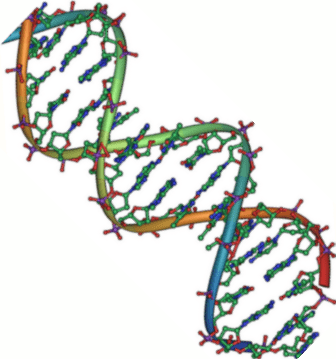
Still pilfering my notes:
The zealous Oxford polemicist for Darwinism, Richard Dawkins: “Even if there were no actual evidence in favor of the Darwinian theory . . . we should still be justified in preferring it over all rival theories.”[1] Why? Simply because it is naturalistic.
C. Todd, a professor at Kansas State University, published a letter in the prestigious scientific journal Nature, announcing that “Even if all the data point to an intelligent designer, such an hypothesis is excluded from science because it is not naturalistic.”[2]
The Anglo-American writer Tom Bethell:
Anyone who believes [in materialism] must, as a matter of logical necessity, also believe in evolution. No digging for fossils, no test tubes or microscopes, no further experiments are needed. For birds, bats, and bees do exist. They came into existence somehow. Your consistent materialist has no choice but to allow that, yes, molecules in motion succeeded, over the eons, in whirling themselves into ever more complex conglomerations, some of them called bats, some birds, some bees. He “knows” that is true, not because he sees it in the genes, or in the lab, or in the fossils, but because it is embedded in his philosophy.[3]
It isn’t a question of creationism versus evolution. Obviously, if I could demonstrate that the world was created in six twenty-four-hour days, the biological argument for theism would be essentially over. If contemporary species of plants and animals were formed instantly by an act of divine special creation, the atheistic viewpoint is untenable. However, I intend to confront that viewpoint at its strongest, accepting the assumption of an evolutionary origin of species and a very, very old earth.
Michael J. Denton, at the time of writing a senior research fellow in human molecular genetics at New Zealand’s University of Otago (and a religious agnostic?), remarked in 1994 that:
No other theory or concept ever imagined by man can equal in boldness and audacity this great claim . . . that all the starry heavens, that every species of life, that every characteristic of reality exits [for the sake of providing a suitable environment] for mankind. . . . But most remarkably, given its audacity, it is a claim which is very far from a discredited prescientific myth. In fact, no observation has ever laid the presumption to rest. And today, four centuries after the scientific revolution, the doctrine is again reemerging. In these last decades of the twentieth century, its credibility is being enhanced by discoveries in several branches of fundamental science.[4]
[1] Richard Dawkins, The Blind Watchmaker (New York: Norton, 1986), 287.
[2] S. C. Todd, in Nature 410, 6752 (30 September 1999): 423.
[3] Tom Bethell, “Against Sociobiology,” First Things 109 (January 2001):18-24.
[4] Michael J. Denton, Nature’s Destiny, 3-4.
***
Two other science-related items for your interest and delectation:
“Why Clocks ‘Falling Back’ Are Good For Your Brain”
Posted from Jerusalem, Israel











